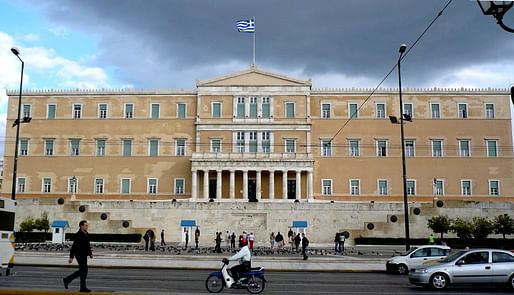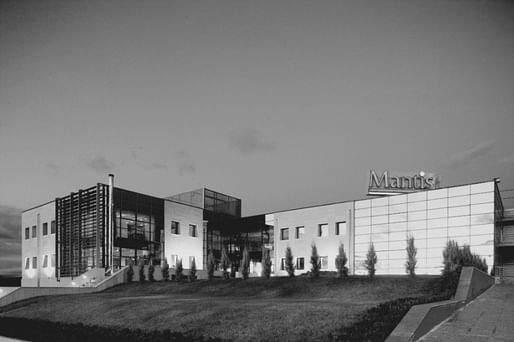

The dust is yet to settle in Greece, as the pronounced “No!” of yesterday’s referendum reverberates across Europe. The vote marked a clear rejection by the Greek people of enforced austerity as the price for staying in the Eurozone. It also signaled continued confidence in Alexis Tsipras and the Syria government, despite hope from the leaders of Europe’s surplus economies for a regime change.
With reports from Athens detailing a grim scene of shuttered ATM’s and closed factories, the country’s future remains uncertain.
Many have compared the current situation to the great depression of the 1930’s, and it’s clear that no economic sector is immune to its ramifications – let alone architecture, a field markedly tethered to economic undulations. Archinect reached out to a couple of its members to get a pulse on what’s happening, as well as what it’s been like to live under austerity for nearly a decade.


“The future of architecture in Greece if the economic crisis is not handled,” wrote Christina Tavoularea of ΑΡΧΙΤΕΚΤΟΝΙΚΕΣ ΕΦΑΡΜΟΓΕΣ, “is definitely not promising.” She detailed how the economic crisis has affected both their practice and the architectural field more generally. “Most of the clients need low budget solutions that do not apply to our work as architects.”
For Tavoulera, Tsipras’s referendum did not offer much hope. “The referendum will not solve the political or economical issues by itself, but it will only divide the public,” she stated.


We also talked with Georgios Alexandrou of Illia Sofia and Partners, a small firm based in Elefsina that he described as representational of the average Greek architecture practice, both in terms size and the scale of operations. “The economic crisis in Greece has had a direct negative effect in our business,” Alexandrou explained. “Our new building assignments have declined by 80%, our income has declined by 60%, we had to lay off 2 employees and work more with legal issues than actual design.”

“Most major architecture firms have closed or just survive,” he continued. “Public works do not exist and private ones have become less and less.”
While Tavoulera expressed concern that the referendum would further divide Greek society, Georgios expressed a more ambivalent attitude, at least in terms of its direct implications for business. He told us, “We have long felt what no investment means. The last pieces of this society that move some money around are civil servants and bank employees, probably the new economic crisis will affect these pieces as well.”

Looking towards the future, Georgios expressed hope for a “major round of public investment,” that could later spur on the private spector. Perhaps more importantly, Georgios was able to find some silver lining to the crisis.
“The economic crisis has created new networks in the society, I believe that the emphasis should be on strengthening these networks with the appropriate infrastructure,” he stated. “The next chapter of the economic crisis will require strong bonds inside the society. Architecture ought to create the space for them to grow.”

No Comments
Block this user
Are you sure you want to block this user and hide all related comments throughout the site?
Archinect
This is your first comment on Archinect. Your comment will be visible once approved.